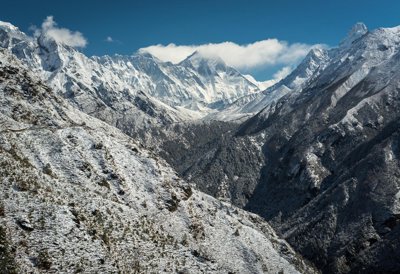How did you get to where you are now?
After finishing my degree, I approached Kenyon with the intention of gaining work experience. I was successful in my approach and enjoyed a month of learning and developing my understanding of the importance of Kenyon’s preparedness programmes and incident response case studies. My interest and passion, together with a willingness to learn and ability to get on well with people, led to me being offered a job as an Operations Specialist which is an integral part of managing global disasters for the company.
Was there anything particularly useful that helped you get into this role?
I spent most of my degree engaging with empirical and secondary research methods to effectively produce a wide variety of papers in the different formats I now use in my job. The broad knowledge base that comes with a geography degree has helped enormously when working with the variety of cultures I engage with across the world on a daily basis (and I deal with many). A lifelong interest in the physical processes of natural disasters, including meteorology and tectonics, and growing up in an up-rooted aviation-based upbringing, led to the excessive watching of anomalous air crash investigations and climate change documentaries which helped me understand the nature and scale of various events.
What do you do as part of your role?
The company collectively offers training to companies worldwide in disaster management, as well as responding to disaster incidents, whether aviation, natural, fire or terrorism to name some examples. I work in the Operations Department and my day-to-day job is effectively split into two roles - consultancy and working in the Crisis Management Centre (CMC).
In my consulting capacity, I work together with the Commercial Team, who sign off on training to companies and authorities, to liaise with clients to organise and deliver the required training. Throughout this period, I plan the logistics, organise the appropriate trainer, quality assure the training material fits the needs of the client and generally see through the delivery of the training to the client.
The second part of my role is in the CMC. When an incident occurs, the CMC is immediately activated as the hub of initial communication overlooking the procedures to provide a successful response. Understanding and managing the resources of the CMC is one of the most vital roles in the company. This includes identifying the range of skilled personnel available to deploy, managing our data management and communication systems, and, to some extent, the vast warehouse of response equipment we manage - overall providing support to ensure the smoothest of responses. This can be hugely demanding both time wise and emotionally, and involves working long hours over sustained periods.
What do you enjoy most about your job?
The overarching feeling I gain from this job is pride. I am part of a team who have put others first for the past 113 years. In the past 15 years, Kenyon’s collective efforts and resources have made a difference in some of the world’s largest disasters to date, including the 2004 boxing day tsunami, Hurricane Katrina in 2005, 9/11, Grenfell Tower in 2017 and many air disasters, including the Germanwings 9525 in the Alps in 2015.
This job provides the opportunity to help people during, most likely, their very worst time - from recovering and identifying victims and their personal effects and returning these to families, to helping the families and client personnel recover after an incident. No day is the same.
In regards to consultancy, it is rewarding to know that I am doing my part in preparing and supporting emergency response plans and training for companies and authorities across the world.
What advice would you give to someone wanting to go in to this career?
Commitment, resilience and passion are vital if going down the disaster management path.
It is quite a niche industry, but the importance of commitment to understanding the many elements and complexities of the job are significant in managing disasters. Dealing with tough situations, including being at the forefront, faced with people who are going through their worst times requires strength and resilience to be professional. Passion is the driving force to giving your 100% at all times and to excel in this industry.
Why did you choose geography? Why should others choose geography?
I chose geography because it covers all elements of the world - of which I am so fascinated by - in all of its forms. I predominantly went down the undergraduate route as my passions lie in climate and tectonic science, however, my interest also lies in the current affairs and ideologies of our world.
Geography is something we deal with in our every-day life; it is a broad subject and holds the widest variety of job opportunities of any other undergraduate degree. The knowledge of geography is limitless and will always be relevant to our past, current and future phases on this earth.
* This interview was undertaken in 2019 and was correct at the time of publication. Please note that the featured individual may no longer be in role, but the profile has been kept for career pathway and informational purposes.
Natalie Fairchild
Job title: Operations Specialist
Organisation: Kenyon International Emergency Services
Location: Bracknell, UK; Houston, USA; Beirut, Lebanon

